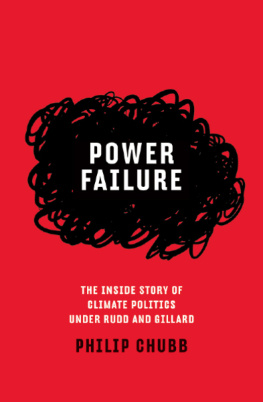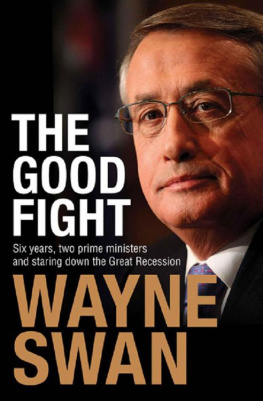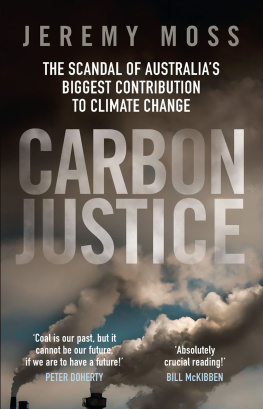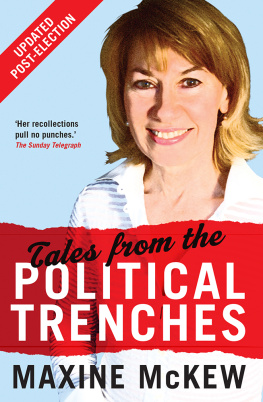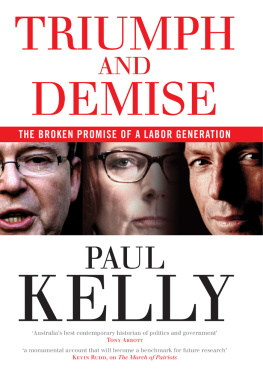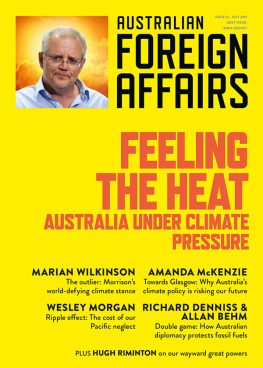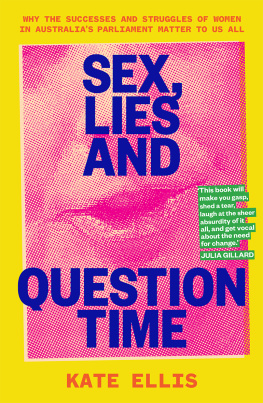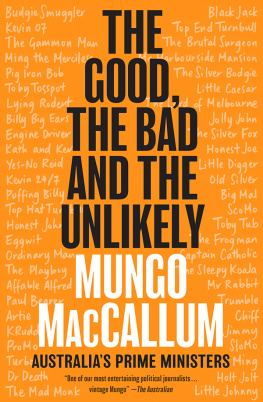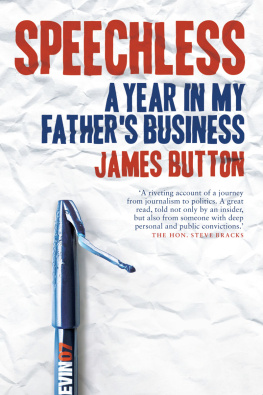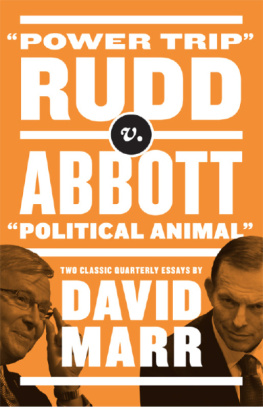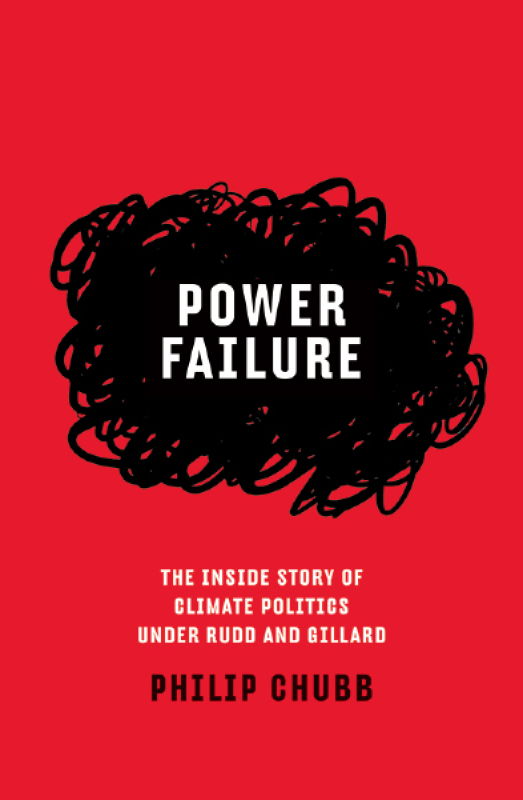NOTE ON SOURCES
This book came together as a result of 107 interviews with 74 people who, in most cases, were central to government climate change policy in the years 200713. Very few of those approached preferred to remain silent and a number agreed to be interviewed more than once. One of these was former prime minister Julia Gillard. The other former prime minister, Kevin Rudd, made himself available for a single interview.
Federal ministers who gave their time generously included both ministers for climate change (Penny Wong and Greg Combet), treasurer Wayne Swan (also deputy prime minister in the Gillard government), Craig Emerson, Nicola Roxon, Mark Dreyfus and Simon Crean. Combet was also Wongs parliamentary secretary for climate change and Dreyfus was Combets. Other political figures interviewed who were important to this story included Greens leader Christine Milne and NSW rural independent Rob Oakeshott. Victorian premier John Brumby provided valuable insights. I interviewed twelve people from the Latrobe Valley whose lives would be hit hard by carbon pricing. Others who participated in interviews included senior public servants, ministerial advisers and consultants working on policy or political strategy.
The interviews were structured to gain insight into and in-depth information about the central research themes. Interviews as a research technique always require careful evaluation. A major issue is that memories of specific events can be distorted by later experience. The process of maximum triangulation with other sources, both oral and written, was used to establish general reliability. Constant comparison was made between the information from each interview and the other sources, including documents, to search for similar and contrasting facts and themes that could then be examined.
In this process, the book has also made use of a large range of independent, private, government and Labor Party reports, research papers, academic articles and books. Most of the documents were publicly available, while some surfaced through Freedom of Information requests and some from old-fashioned leaks.
All of the politicians interviewed spoke on the record, with one exception. The exception was Kevin Rudd. Leaving Rudd aside, all final and follow-up interviews with government ministers central to the story were concluded by October 2013. Gillard was interviewed in December 2012 at the Lodge, and again by phone from Melbourne on 20 September 2013, just after the election that saw Labor ejected from office by disillusioned voters.
Rudd was unable to meet until 7 February 2014. He made many points in the course of the conversation and sent me additional information afterwards. His views were injected into the book. But readers will find no direct quotes from him. This is because the former prime minister spoke on a background basis only, meaning that he wanted me to use what he said but not attribute it to him directly.
The perspectives Rudd provided were useful, but it also should be pointed out that his general position has long been well known on all of the key issues. While Gillard has not been prepared to make her views clear until the interviews conducted for this book, Rudd and his core supporters dominated discussion and analysis of the climate policy narrative, almost always through the device of backgrounding journalists. On some important issues, his views have thus become, to this point, received wisdom. The most aggressive formulation of Rudds position was in the account Tales from the Political Trenches. The author, Maxine McKew, is a former ABC presenter, was the victor over John Howard in his seat of Bennelong in 2007, became the parliamentary secretary for early childhood development, and is a passionate Rudd supporter. McKews arguments about some central issues are the same as Rudds arguments. They are dealt with in Chapter 4.
An interview I did with Rudds climate change minister, Penny Wong, also helps us understand why Rudd acted as he did during the period in question. In defending some of her own positions, Wong sometimes inevitably defended Rudds; the interview with her played an important balancing role in the book, even though the experience of 200710 converted her to being an opponent of the former prime ministers leadership. (Wong shifted her position on the leadership back again in June 2013 to support Rudd in the final showdown with Gillard, and was rewarded with the job of government leader in the Senate.)
Another issue to consider when reflecting on the use of sources is anonymity. Many senior public servants and ministerial advisers agreed to be interviewed on condition that their names be withheld. These people were constrained by the confidentiality of Cabinet and other deliberations, discussions and decisions. They also required anonymity because their professional reputations and futures require them to be dependably discreet. Those interviewed for this book generally did not have permission to speak. Certainly they did not have permission to speak freely, which was what was being asked of them.
The widespread use of anonymous sources raises important issues and is, as the New York Times stylebook puts it, a last resort. But it also was a necessity. Public servants and ministerial advisers are vital participants in events and often clear-eyed witnesses to history. Some of the most important journalism in the public interest has required confidential sources. There are many such examples that have changed the world for the better.

